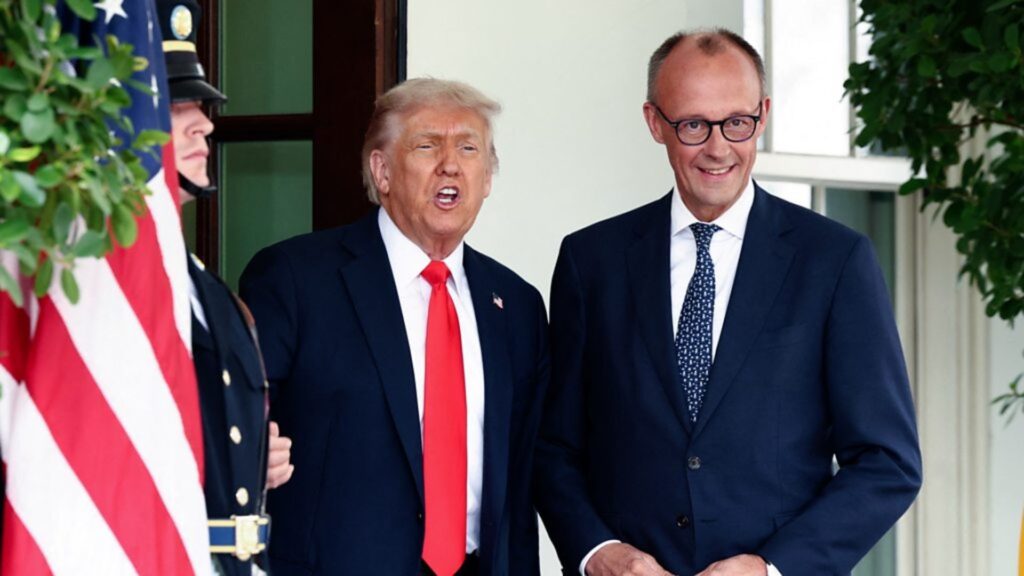In his first face-to-face meeting with German Chancellor Friedrich Merz on Thursday, U.S. President Donald Trump stirred controversy by suggesting it might be best to let Ukraine and Russia “fight for a while” before intervening to bring about peace. Comparing the ongoing war to a quarrel between two children, Trump said he had relayed this analogy to Russian President Vladimir Putin during a phone call the previous day.
The meeting, held in the Oval Office, marked the first official visit by Chancellor Merz since taking office on May 6. Seated alongside Trump, Merz underscored Germany’s unwavering support for Ukraine, calling the war “terrible” and asserting that Kyiv’s military actions have been limited to legitimate targets. He praised Trump’s influence, noting, “You are someone who can help stop the bloodshed.”
Trump’s remarks about potentially delaying peace efforts drew attention, especially as he hinted that sanctions could be imposed on both sides if the conflict reached an uncontainable point. “When I see the moment where it’s not going to stop,” Trump said, “we’ll be very, very tough.”
Despite diverging views on how to handle the war, both leaders emphasized shared concerns over global security, trade, and NATO commitments. Trump, who has long criticized NATO allies for insufficient military spending, renewed his demand that members increase their defence budgets—this time urging them to meet a 5% of GDP benchmark, up from the current 2% goal.
Merz, a conservative politician with a background in finance and business, responded cautiously to Trump’s push on defence spending. Under his leadership, Germany has pledged to continue its military aid to Ukraine, including support for long-range missile development. The Merz administration is also working to strengthen Germany’s armed forces, a policy shift that began under his predecessor, Olaf Scholz, following Russia’s 2022 invasion of Ukraine.
The meeting was also marked by a symbolic gesture—Merz presented Trump with a gold-framed birth certificate belonging to Trump’s grandfather, Friedrich Trump, who emigrated from Germany to the United States in the late 19th century.
Beyond military issues, the leaders also addressed trade and concerns over democratic values. A White House official said Trump intended to raise issues regarding perceived restrictions on free speech in Germany. In response, Merz said he welcomed discussion on domestic matters but emphasized that Germany typically refrains from commenting on the internal politics of its allies.
The two leaders have spoken multiple times by phone since Merz took office, with German officials describing the relationship as “decent” and noting Merz’s effort to maintain a more constructive tone than former Chancellor Angela Merkel’s often strained ties with Trump.
Merz has taken a proactive role in European diplomacy on Ukraine, having visited Kyiv shortly after his inauguration and hosting Ukrainian President Volodymyr Zelenskyy in Berlin last week.
As the war grinds on, Thursday’s meeting highlighted both transatlantic cooperation and the differences in how Washington and Berlin envision a path toward peace in Eastern Europe.

